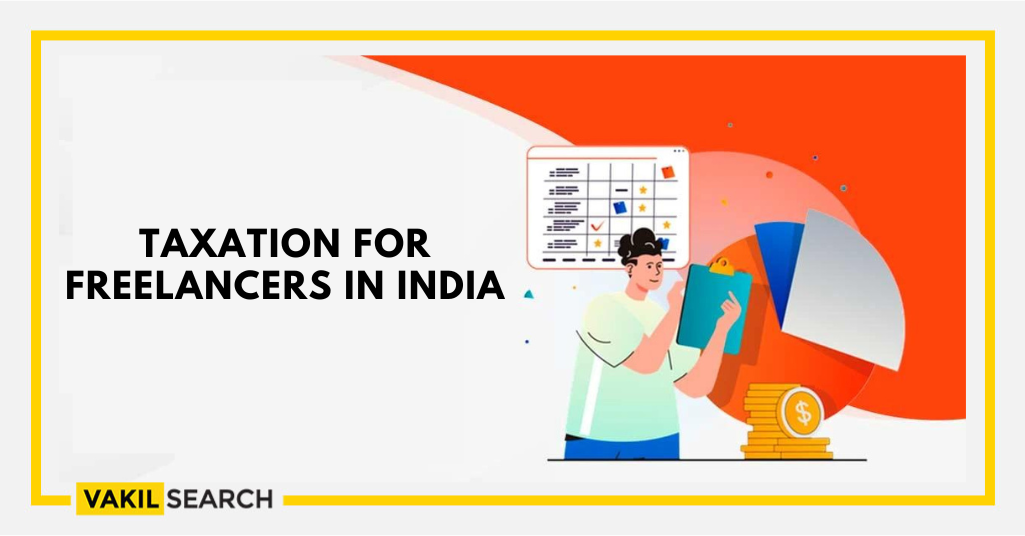An Overview of Taxation for Freelancers in India
Taxes Applicable to Freelancers
Freelancers in India are subject to the same types of taxes as any other individual or business. The key taxes freelancers need to be aware of include income tax, goods and services tax (GST), and professional tax.
Income Tax
Income tax is payable on any income earned within India, regardless of the source. Freelancers must register for a Permanent Account Number (PAN) with the Income Tax Department and file Income Tax Returns (ITR) every year before the July 31st deadline. Their total freelancing income from all clients and projects is taxed according to the individual’s tax slab rate. Freelancers also need to pay Self-Assessment Tax (SAT) on their estimated annual tax liability. Maintaining accurate financial records is important for income tax compliance.

Goods and Services Tax (GST)
The GST registration process must be completed if a freelancer’s annual turnover exceeds Rs. 20 lakhs. Once registered, GST must be paid at 18% on all services provided to clients. Freelancers are responsible for paying GST to the government within 30 days of invoicing and filing regular GST returns online. A dedicated GST bank account should be maintained to transfer tax payments through the GSTN portal.
Professional Tax
Some states require freelancers to pay monthly professional tax in addition to income tax. The amount varies but is a relatively small fee deducted directly from earnings.
Deductions and Allowances
When calculating taxable income, freelancers can deduct certain business expenses incurred for earning revenue. Key deductions include:
Website and Software Costs
Expenses related to owning and maintaining an online portfolio or blog can be deducted, such as domain registration, website design, and content management software.
Office and Equipment Expenses
Costs associated with having a home office space or using equipment for freelance work are deductible. This includes items like rent, Internet access, computer hardware/software, and stationery.
Travel and Transportation
Expenses for visiting client sites, delivering products/services, and using own vehicles for work purposes can reduce taxable income.
Tax Deduction at Source (TDS)
If a client’s payments to a freelancer exceed certain thresholds in a fiscal year, the client is responsible for deducting Tax Deduction at Source (TDS) and depositing it with the government on behalf of the freelancer. Freelancers then claim TDS credit while filing their annual income tax returns. They must also file quarterly TDS returns to reconcile TDS deducted vs taxes payable.
Section 44ADA Simplified Presumptive Tax
An alternative to paying income tax under regular slabs is opting for the Section 44ADA presumptive tax scheme. Under this, freelancers simply pay tax at 50% of their gross receipts or Rs. 50,000, whichever is higher. However, deductions for expenses cannot be claimed, and freelancers must forego certain exemptions and benefits.
Record Keeping Requirements
Freelancers are required to maintain financial records and source documents related to income and expenses for up to eight years. Those earning over Rs. 10 lakhs annually also need to get their books audited by a chartered accountant. Proper record keeping is crucial for tax compliance and proving expense claims during assessments.
Key Takeaways
In summary, Indian freelancers face similar tax obligations as other businesses but have some unique considerations around annual ITR filing, SAT payments, GST registration requirements, and TDS deducted by clients. Maintaining clear financial records and staying updated on evolving taxation laws is important for freelancers to remain tax compliant in India. Seeking expert tax advice is also recommended, especially for large businesses.
Challenges Faced by Freelancers
While taxation policies aim to bring freelance income under the tax net, some requirements pose difficulties for solopreneurs and small independent professionals.
Complex Compliance Process
The multitude of compliance tasks like PAN registration, ITR filing, GST returns, TDS deposits can overwhelm freelancers unfamiliar with the tax system. Tracking income sources and expenses accurately also requires bookkeeping expertise.
Working Capital Constraints
Paying quarterly taxes on estimated income through SAT deductions poses cash flow issues for those reliant on project milestones. Freelancers may struggle to meet tax deadlines before receiving full payments.
High Compliance Costs
The services of tax attorneys and chartered accountants are usually essential but entail additional budget that small operations may find difficult to accommodate regularly.
Limited Tax Deductions
Certain common freelancer expenditures like internet bills, computer hardware, or meal allowance during client meetings are still not fully recognized as deductible business expenses in India.
Simplifying Compliance for Freelancers
While the taxation framework brings much-needed revenue for the government, some changes could help boost the growing freelance sector in India.
Streamlined Annual Filing
A consolidated annual return capturing all sources of freelance income could replace multiple processes like ITR, GST, TDS filings and reduce hassles.
Threshold Increase for GST Registration
Gradually increasing the Rs. 20 lakh threshold would exempt very small businesses from onerous quarterly GST compliance obligations.
Expense Deduction Expansion
Recognizing additional everyday operating costs incurred by freelancers through remote work could lower their effective tax burden.
Staggered Self-Assessment Payments
Allowing SAT payments aligned with actual receipts rather than estimated outflows on a quarterly basis would prevent cash flow issues for freelancers.
Incentives for Record Maintenance
Tax incentives or simplified audit for freelancers demonstrating organized digital bookkeeping habits could promote voluntary compliance.
Overall, a balanced approach balancing revenue needs with support for informal job creators could help the fast-growing freelance sector in India realize its full potential. Regular consultation and feedback will also ensure the tax system evolves optimally over time.
